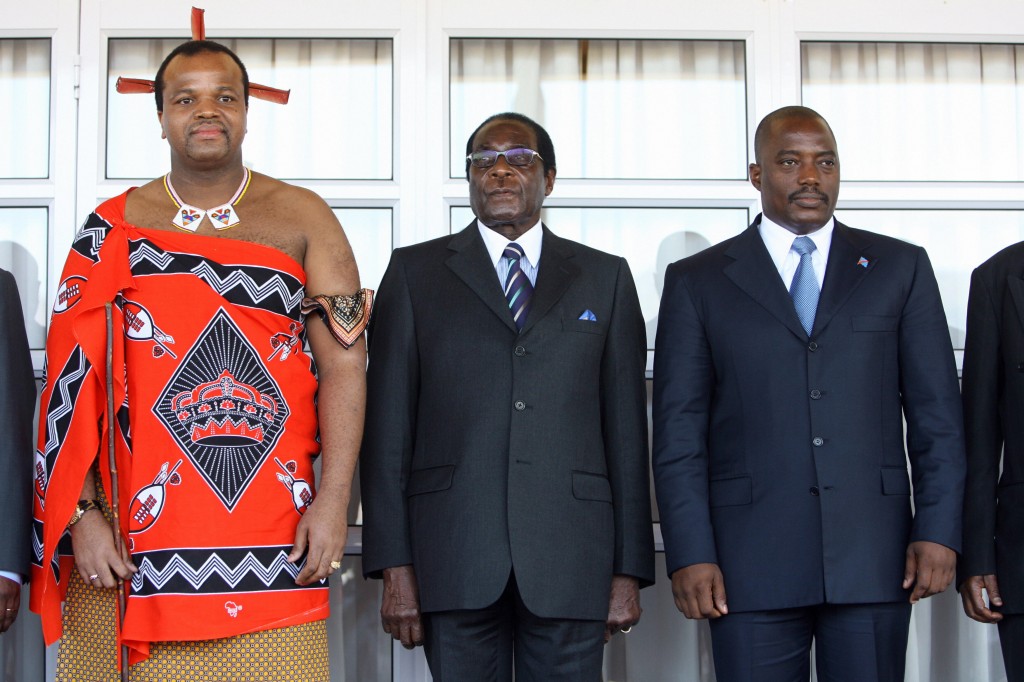Bristol-based film maker Simon Bright, whose award-winning documentary Robert Mugabe, What Happened? won critical acclaim, has turned the spotlight on another autocratic southern African leader in his latest production.
The King and the People, which has its world premiere at Bristol’s Afrika Eye film festival on November 9, explores the often brutal relationship between King Mswati III of Swaziland and the people of this small, impoverished country.
The film has its world premiere at Bristol’s Afrika Eye film festival on Saturday November 9 at the Watershed Media Centre.
Described as the last absolute monarch in Africa, Mswati III rules Swaziland and its 1.2m citizens with impunity. The country has the world’s highest HIV rate, life expectancy is about 40 and most of the population live on food aid.
Yet Mswati III, who Forbes lists as one of the world’s 15 richest royals, enjoys an opulent lifestyle. He has an estimated wealth worth hundreds of millions of pounds and each of his 14 wives has her own palace and at least three cars.
There are no free and fair elections and any opposition is crushed – activists are often beaten, imprisoned or forced into exile.
It was after Simon – himself an exile from Zimbabwe – screened Robert Mugabe, What Happened? at a festival in South Africa that he was approached by Swazi activists asking him to make a similar film about their country.
“I saw the parallels,” said Simon, whose production company Zimmedia made the film. “The Mugabe film was about an oppressive leader who uses his status as a revolutionary hero to oppress the people. Mswati III uses tradition in the same way.
“I was drawn to making the film because it’s part of the same story of southern Africa and the fight for some form or democracy.”
As with the Mugabe film, Simon went undercover with the activists who smuggled him into the country to interview key figures in the opposition – many of whom had been beaten or jailed for their views.
“It was an eye-opener for me,” he says. “I didn’t know much about the oppression in Swaziland. The people who speak out in this film are the brave ones – we certainly wouldn’t have got permission to film there. The activists want to use it as a tool to get their message across to the outside world.”
Filming undercover in Swaziland was not without its dangers. “It got pretty close to the edge at times,” said Simon.
“We got close to being locked up for filming without permission. On one occasion when we were filming on a sugar estate I had to talk my way out of a situation. Fortunately I was brought up on one in Zimbabwe so could speak to the guy in his own language. It was a fluke but it got us off the hook.”
Simon hopes the film will lift the lid on an overlooked corner of Africa.
“People don’t really see what’s going on there. It’s hidden away,” he says. “The king came to the Queen’s Jubilee and is accepted as a traditional monarch but the country is in a terrible way. He retains absolute power over the state, the land, the law and media and the people.”
Robert Mugabe, What Happened, won the Best Editor category in the South African Film and Television Awards 2012 and was nominated for Best Documentary.
The King and the People’s world premiere is on Saturday Nov 9 at 6:30pm at Bristol’s Watershed Media Centre as part of the cty’s Afrika Eye film festival.
Bristol Business News is delighted to support Afrika Eye. For more information go to afrikaeye.org.uk






























